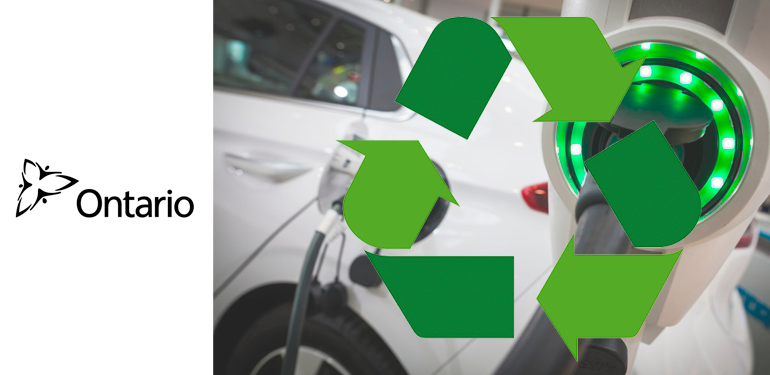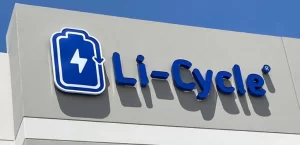Toronto, Ontario — A decision has come from Ontario’s Ministry of Environment to not include large automotive batteries, such as lead-acid and larger hybrid or EV batteries, in new battery regulations for Ontario.
Based on the feedback received by the provincial government, Ontario has removed all regulatory requirements for large batteries used for automotive applications, as these batteries are already managed through alternative collection and recycling channels.
It will also leave embedded batteries out of the stewardship scheme, as it plans to regulate these batteries through the electrical and electronic equipment regulation, which is still in the process of being finalized.
The province had been considering shifting toward a full producer responsibility framework for reduction, reuse and recycling of resources by proposing two new regulations. The regulations would require producers to manage electrical and electronic equipment and EV batteries at the end-of-life stage in a “safe and environmentally-sound manner,” according to the provincial government.
“There had been consultations regarding bringing large batteries into the extended producer responsibility world similar to scrap tires,” said Steve Fletcher, managing director of the Automotive Recyclers of Canada. “We argued, I believe successfully, that, because these items have value, it is extremely disruptive to treat them as waste and require an administrative burden with no improved environmental performance.”
EV batteries contain valuable metals and other precious materials that can be recovered, processed and reused.
There will be a panel discussion at next month’s Ontario Automotive Recyclers Association Convention and Trade Show on scrap tires, which are still managed by extended producer responsibility via the Resource Productivity Recovery Authority.
For more information on the recent decision, click here.





















